Hardly a surprise, but yes. Unless sending special forces, landing paratroopers and blockading roads and airports of another country is routine in ordinary military drills, then of course Russia has invaded.
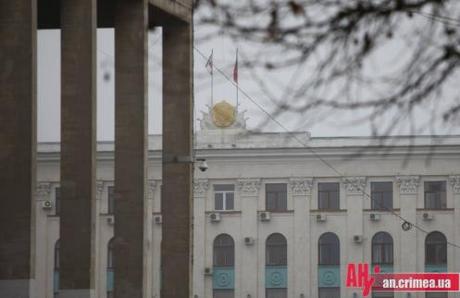
The Russian flag flies over the Council of Ministers of Crimea parliament building. (foto: All News Crimea)
Neither do you sack a regional government and replace it with a new and unelected government when carrying out drills from across the border.
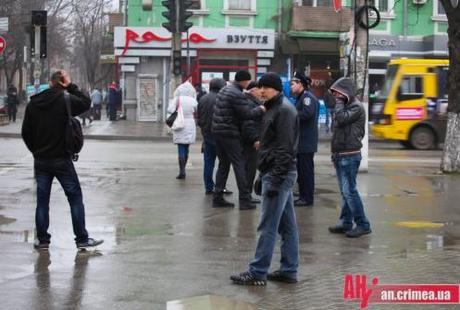
Residents of Sevastapol question police officers. (foto: All News Crimea)
The Kremlin will use the excuse that the new Crimean government needed protection from so-called radicals coming down from Kyiv, but in the end the scenario will likely be a repeat of Abkhazia and South Ossetia after the war with Georgia in 2008.
We should note that by treaty the Russian military presence in Crimea is limited to three helicopters in the air simultaneously without permission from Kyiv. The Kremlin refuses to acknowledge the new government and thus claims there is no one to ask permission during the crisis.
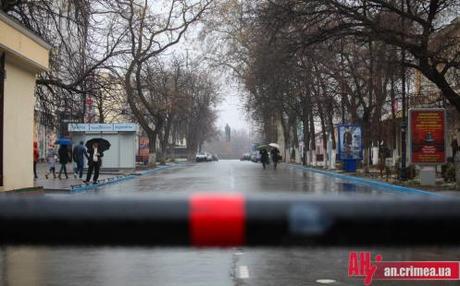
Streets in Sevastopol are blocked. (foto: All News Crimea)
Access to the Simferopol and Sevastopol airports had been blocked after a group of Crimean Tatars battled Crimean self defense units yesterday.
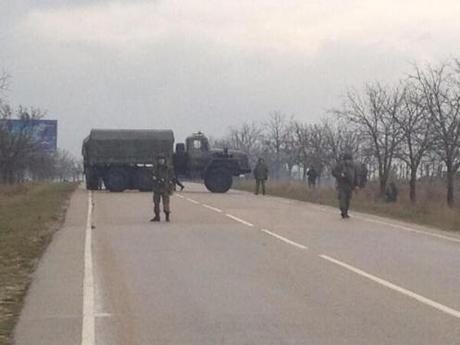
Access to airports in Simferopol and Sevastapol have been blocked. (foto: Avmalgin LJ)
Today new troops arrived and airport security officials in Sevastopol said that Crimean police did not know the identity of those who took control of the airport other than it was a group of fluent Russian speaking and heavily armed men who told airport security officials to go home and not return until asked.
Interfax News reported that the troops arrived at the airport in KAMAZ (Russian military vehicles) without license plates and no markings.
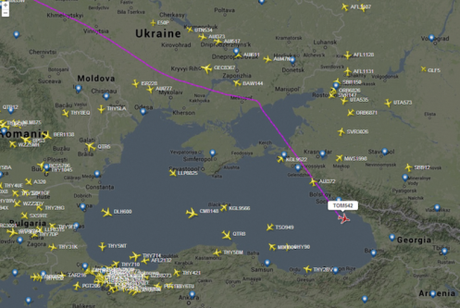
Civilian and commercial air traffic in and around Crimea has been curtailed. Aeroflot has announced the temporary suspension of service as have Ukrainian airlines.
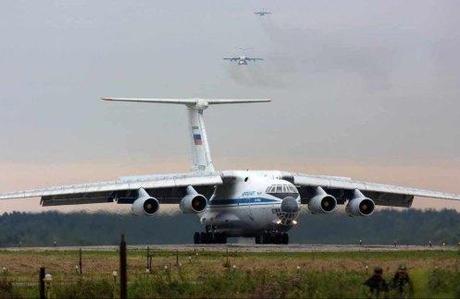
Russian transport planes have moved in special forces troops and heavy equipment.
Meanwhile in Moscow the Russian Duma (parliament) is working overtime on a bill to re-word the law allowing a territory to enter into the Russian Federation. Currently the law stipulates that a territory must seek permission of both its current state and appeal to the Russian Federation. Only after the country in which the territory is located agrees to the transfer can Russia accept a new member of the Federation.
The new bill being drafted would allow the President of Russia to receive a foreign territory, regardless of agreement from another country, if that territory has carried out a referendum of the territory’s citizens or if its council of ministers has voted on the request to Russia. Russia says this is necessary because there is currently no legitimate government in Ukraine.
Will Mr. Putin throw Viktor Yanukovich under the bus? Given the language of the new bill being drafted in parliament we’d expect Russian President to continue to hold ousted Ukrainian leader Viktor Yanukovich at a distance as Yanukovich has voiced his refusal to allow Crimea to leave the Ukrainian state.
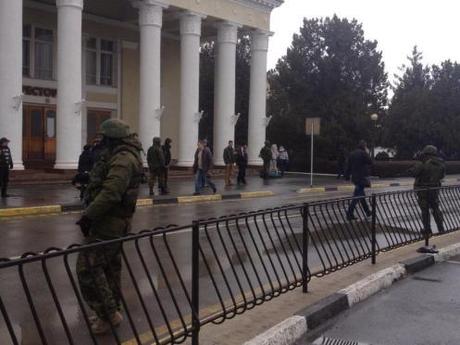
Feb 2014 Crimea occupied (foto: Avmalgin LJ)
Local media are reporting that phone and internet connections between Crimea and the rest of Ukraine has been cut. Crimean communications utility Ukrtelecom is reportedly under the control of either the new pro-Russian government or Russian special forces.
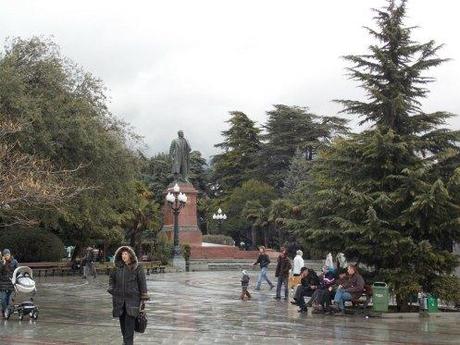
Statue of Lenin in Yalta. (foto: Anna Panchenko)
Citizens of the area were to have voted in March on removal of Lenin statues which are objected to by ethnic Ukrainians and Tatars. However the new pro-Russian government has postponed that poll with no date set for voting.
The annual rent that Russia currently pays Ukraine for the Black Sea naval base is $100 million dollars annually.
